“Cackling hens.” Till very recently, the women of far western Nepal were so used to this derisive comment whenever they opened their mouths that they never did. But there is a change in the mountain air.
Women living along the transboundary Mahakali River that marks the western border of Nepal with India have had to cope with frequent and intense droughts, cloudbursts, snowfall and flash floods – all worsened by climate change – while their men migrate to the plains in search of jobs. Now they are finding their voices. Recent support from NGOs has been a confidence booster.
They are still shy. When asked about their lives by this woman reporter and photographer, they still respond with giggles. But tucked behind these shy giggles are courageous stories of freedom, interdependence, solidarity and sisterhood. Joyously and proudly, they lead me to their accomplishments across the mountains laden with green vegetables, the bridges they made, the water whose quality they tested, the drinking water facilities they provided to the schools – all without help the men in the village.
For many, the WEC meetings provided companionship, a valuable support system, a purpose to look beyond their homes and do something for the community they lived in.
Now, when they walk miles across mountains and rivers for their Women Empowerment Centre (WEC) meetings, no man dares say “pothee baasyo“, the Nepali phrase for cackling hens.
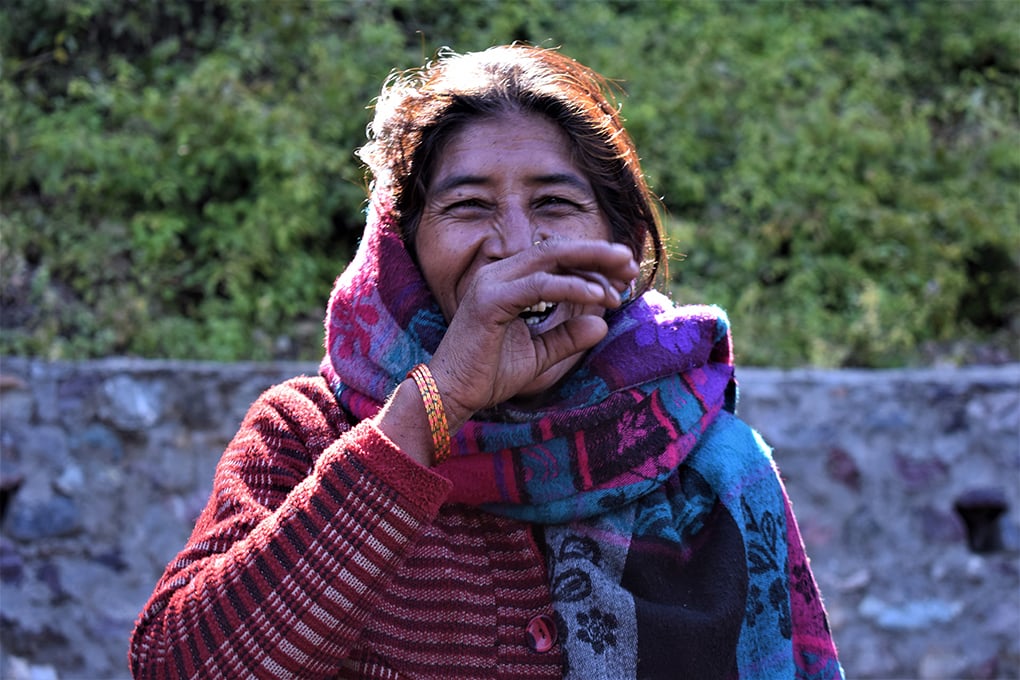
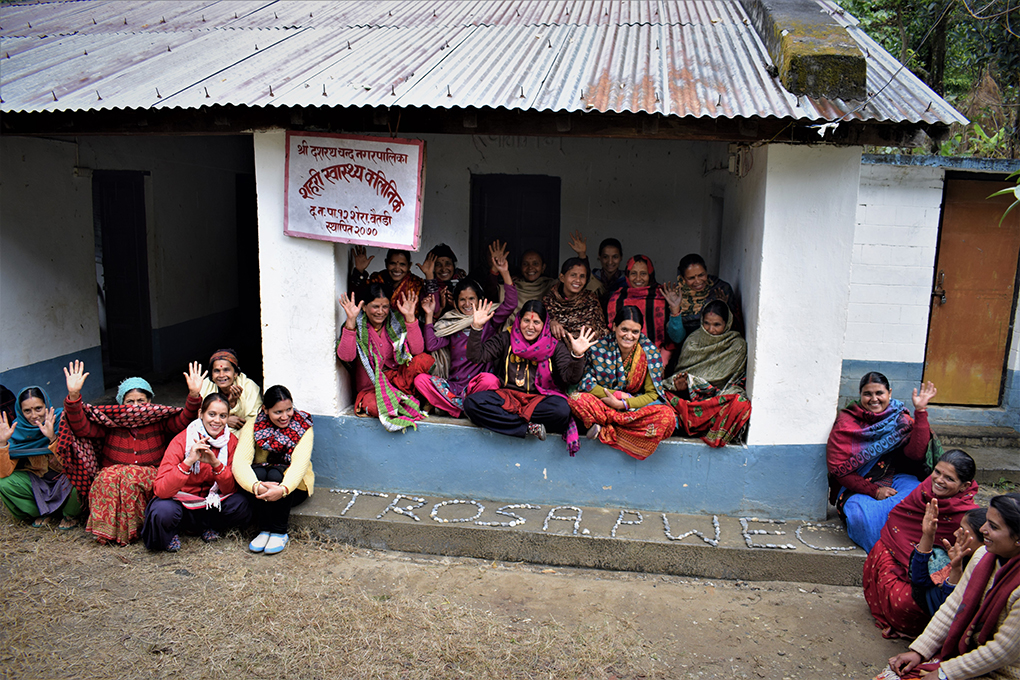
Starting in the High Himalayas, the Mahakali River passes through the mountains of Darchula, Dadeldhura and Baitadi before flowing down to the plains in Kanchanpur. It enters India, where it is called the Sarada, and eventually joins the Ganga.
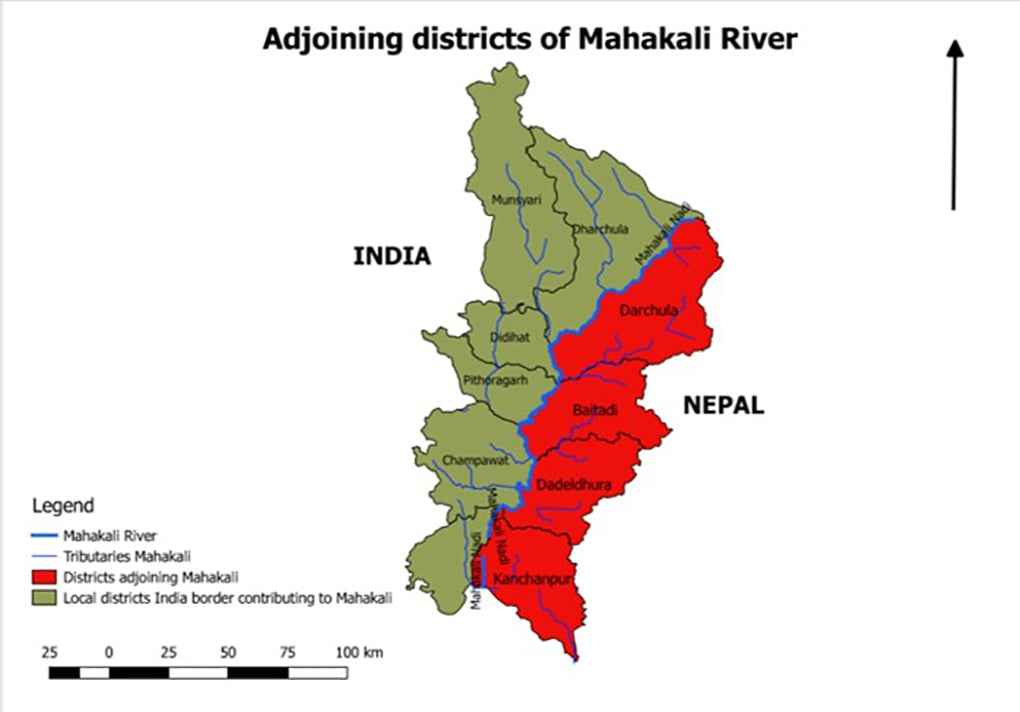
The stretch from Darchula to Kanchanpur is the only one without any large human-made construction so far –– a rare free-flowing river that may soon lose this quality with the construction of the Pancheshwar dam by the Indian government. The hydroelectricity project planned in a highly seismic zone may affect traditional irrigation and may also block the route of the endangered Golden Mahseer, already on IUCN’s Red List of Threatened Species in 2018. The rampant and partially illegal sand mining is already affecting the fish once known as the king of mountain trouts.
All the developments – present and planned – also threaten Nepal’s Shuklaphanta National Park, a 305 square kilometre area of grasslands, forests, riverbeds and wetlands that is typical of the ecosystems in the Terai foothills of the Himalayas. It is an area particularly rich in interdependent plants and animals.
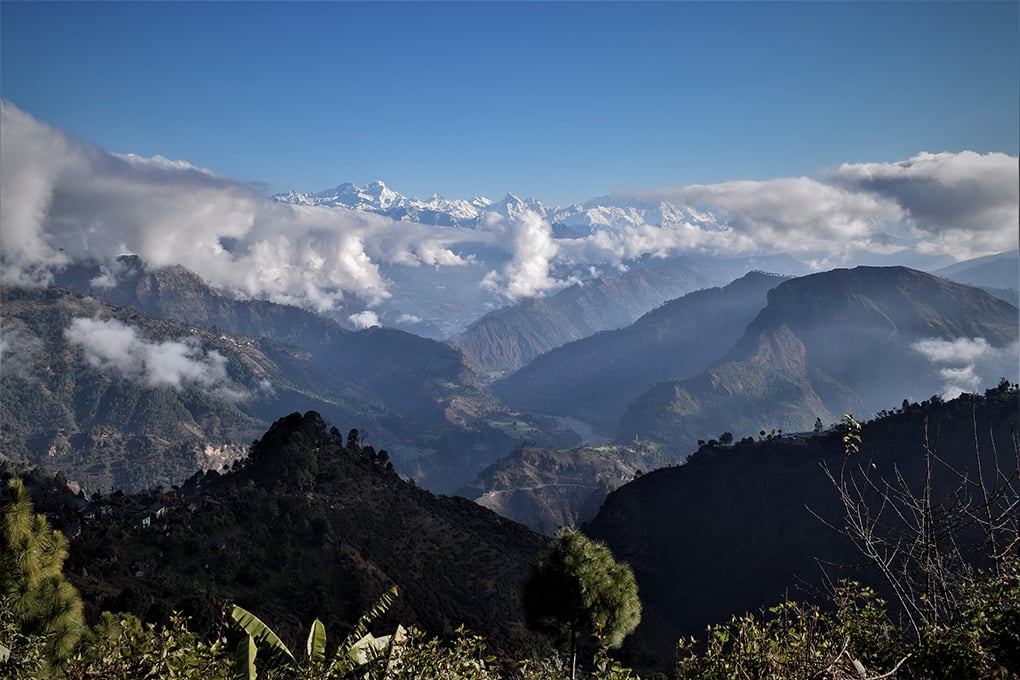
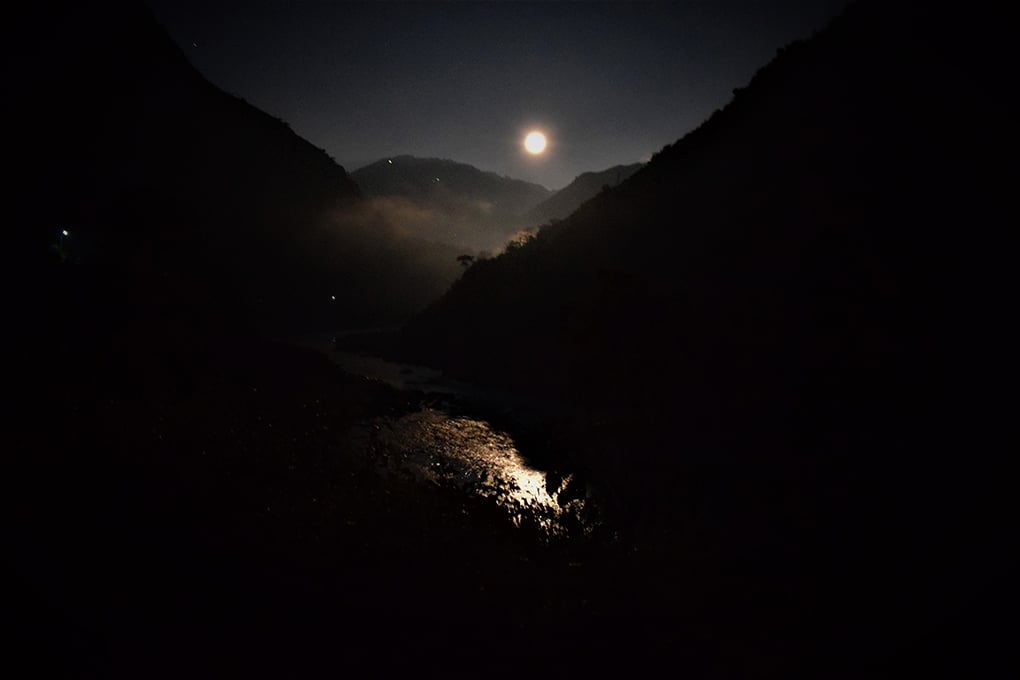
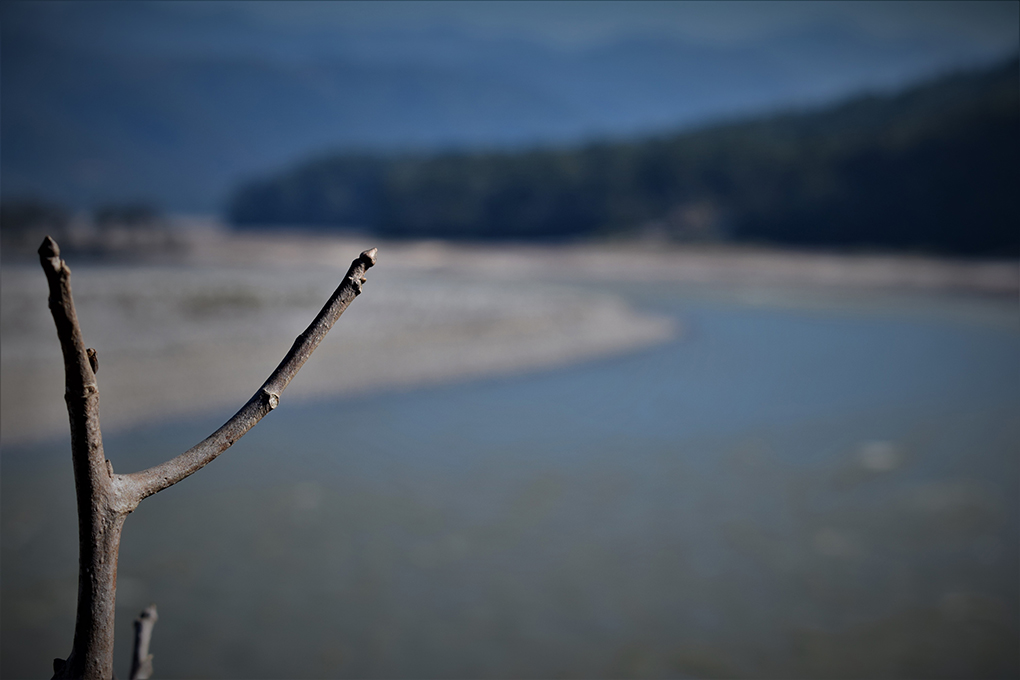
Women of Mahakali
As life gets tougher, the women have banded together, a process initiated through setting up Women Empowerment Centres by the NGO Oxfam with its TROSA (Transboundary Rivers of South Asia) initiative, in partnership with local NGOs such as Sankalpa in Darchula, RUDES (Rural Development and Environment Management Society) in Baitadi, RUWDUC (Rural Women’s Development and Unity Centre) in Dadeldhura and NEEDS (National Environment and Equity Development Society) in Kanchanpur.
With a central focus on governance of the water that dictates so many aspects of their lives, the women learnt leadership skills, joint decision making and very importantly, what to tell the authorities. Their biggest lesson – problems are reduced when shared.
It was not easy to defy the centuries-old practice of remaining silent. Men would discourage women from attending the WEC meetings, saying it was not leading to earning money. Some men said that the women were wasting everybody’s time and should get back to the kitchen. Others resisted silently. But resist they did.
The women found ways to get around the resistance. They met in the riverbed, away from the village, crossing mountains to do so. Some found it easier because their menfolk were away, but they had more chores in their households and farms – then other women would help them out. For many, the WEC meetings provided companionship, a valuable support system, a purpose to look beyond their homes and do something for the community they lived in.
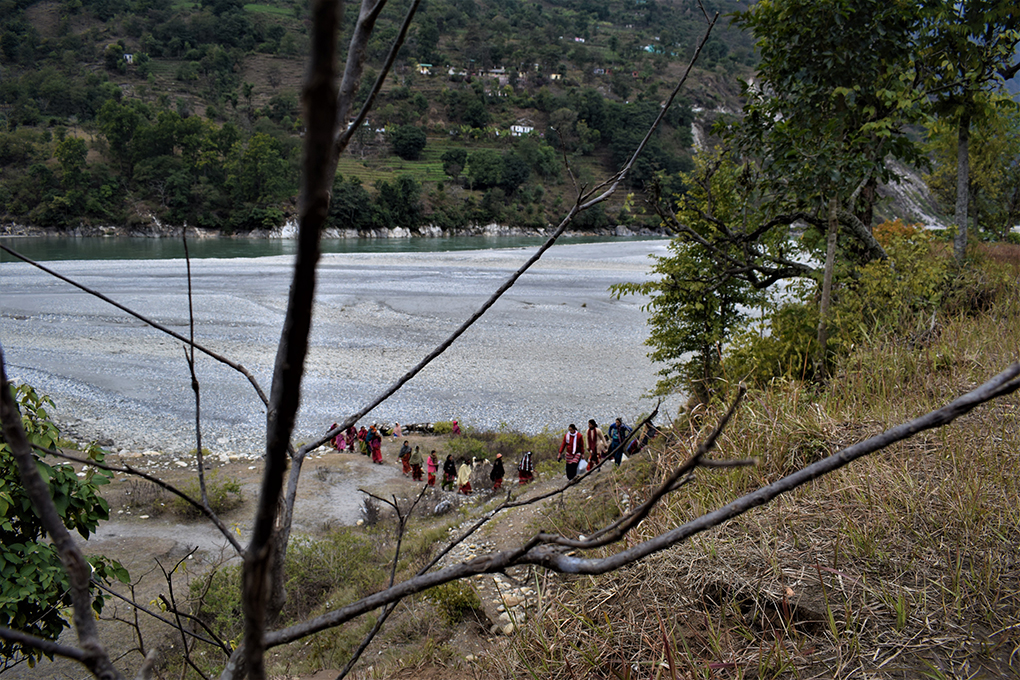
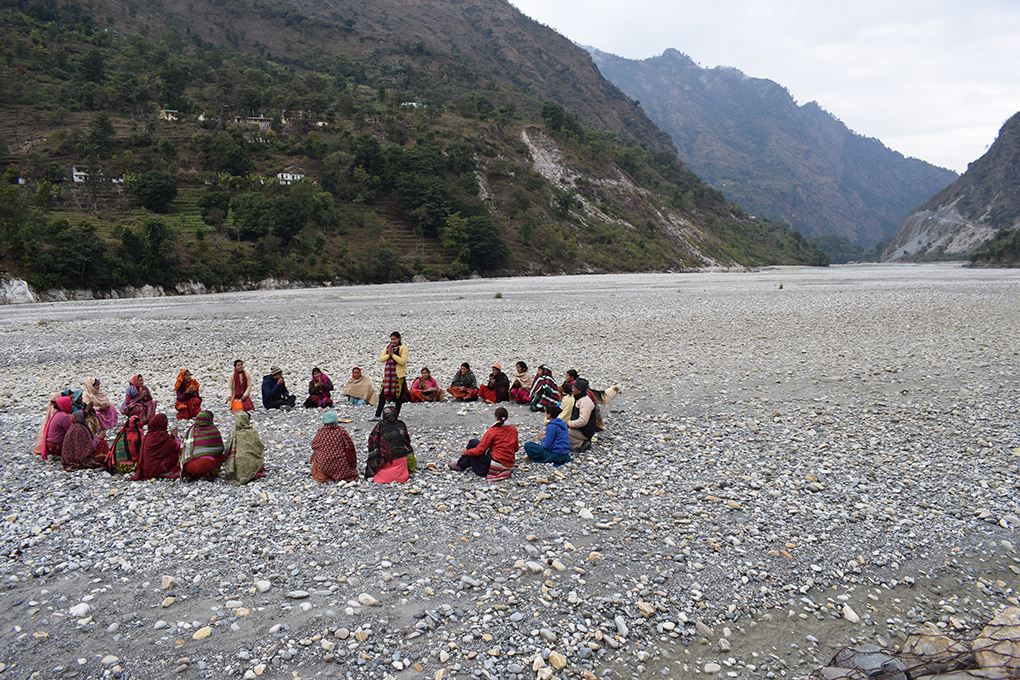
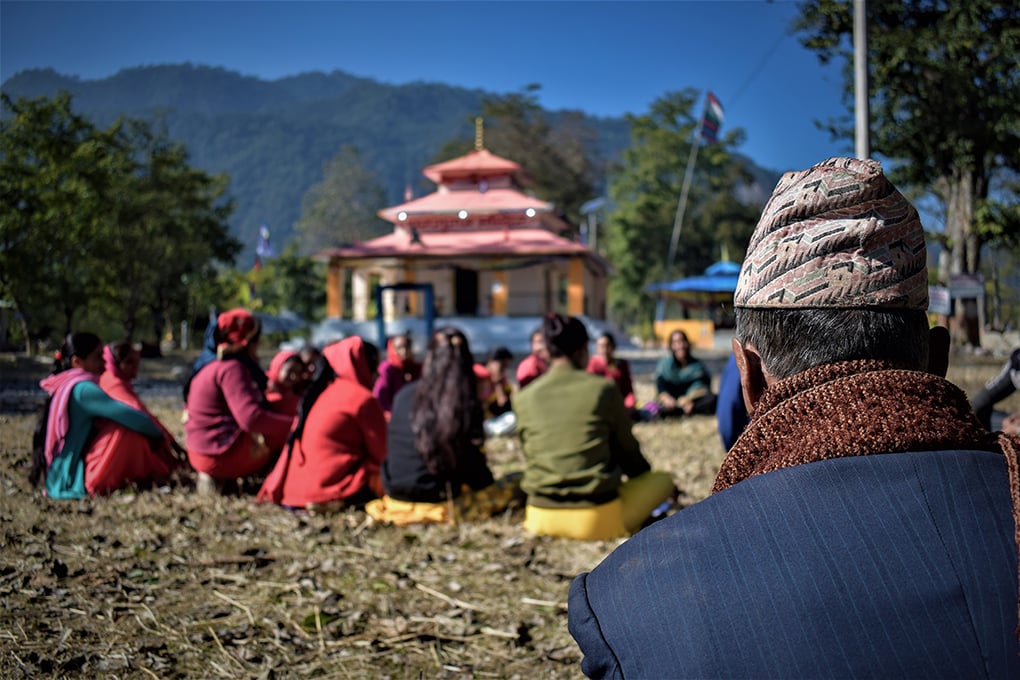
Women and water
Crucially, the women became more conscious of the roles played in their lives by the Mahakali and its tributaries – providing water for drinking, cooking, bathing, washing, irrigation. They learnt about the rights they had over the water. Some learnt to use the basic water quality testing kits distributed by TROSA. Other learnt to use the test results to petition municipalities to set up sewage treatment plants. Some urged their neighbours to build toilets at home; some to boil the water before drinking it.
One of the most daring things they do is to band together and patrol the Mahakali in Kanchanpur every night to deter illegal sand and stone mining from the riverbed, as well as illegal fishing. The local mayor and police chief have learnt to respond quickly if any woman calls from the riverside at midnight.
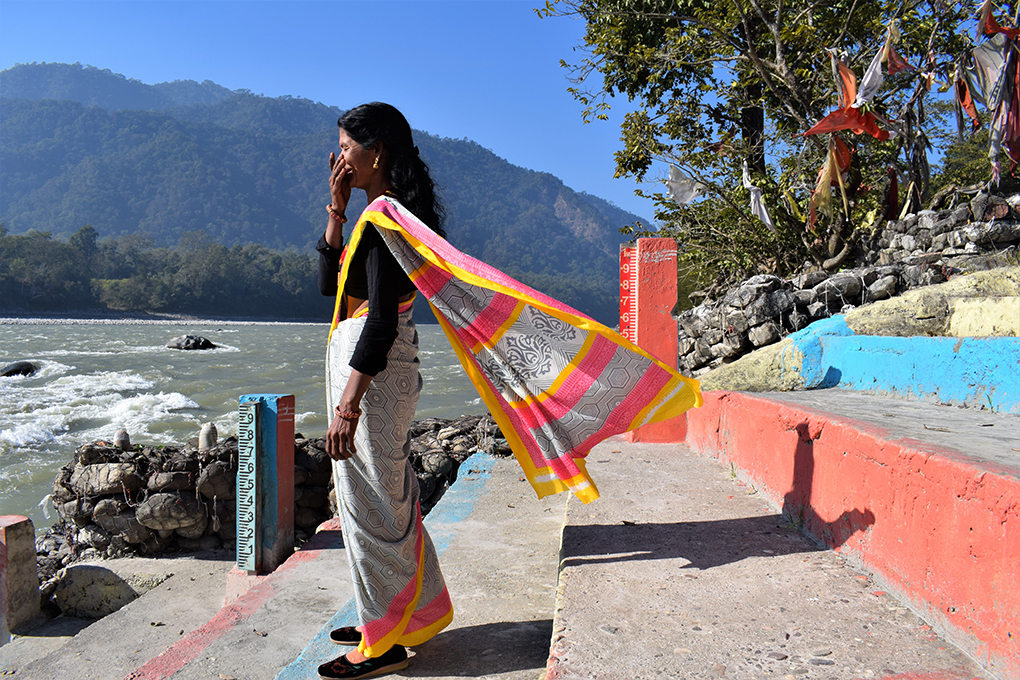
“Learning became addictive to the women in these villages,” says Kishan Khadka of the NGO NEEDS, which is working closely with TROSA. “When women understood that their learning could lead to their independence, they started meeting twice a month at a stipulated time. And on those days, they would complete all their household chores double quick,” just to meet their fellow women folk. One woman said, “We did not realise that we could do more than just kitchen work and gathering fodder.”
In the Hindu pantheon, Kali is the goddess who symbolises woman power. Mahakali means Great Kali.
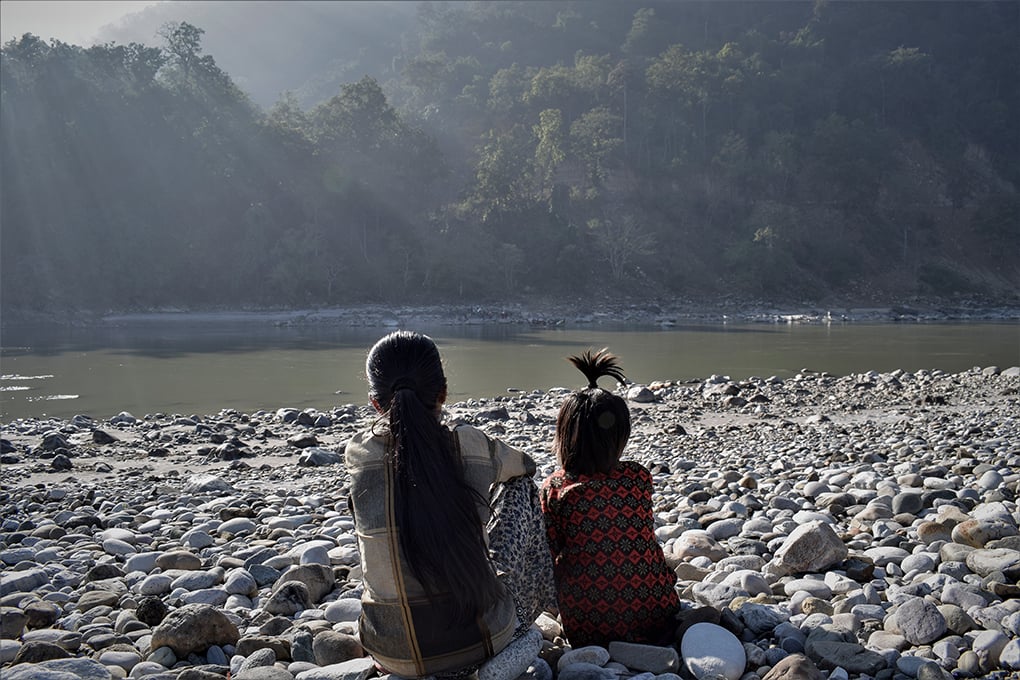
Next: Lives without men
This work was supported by The Third Pole-Oxfam Shared Water Media Grants as part of the Transboundary Rivers of South Asia (TROSA) project funded by the Government of Sweden. Views expressed are solely those of the author
![<p>The way to the Women’s Empowerment Centre meeting near a village on the transboundary Mahakali River basin [All images by Minket Lepcha]</p>](https://www.thethirdpole.net/content/uploads/2020/02/Minket-Story-1-Main-Picture-300x200.jpg)

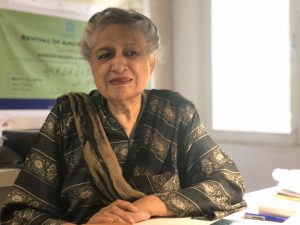
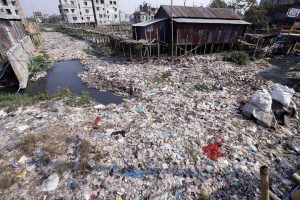
![A farmer creates noise using pots and pans to 'scare off' locusts swarms [image by: Sirajuddin]](https://www.thethirdpole.net/content/uploads/2020/02/IMG_5294_cropped-300x202.jpg)